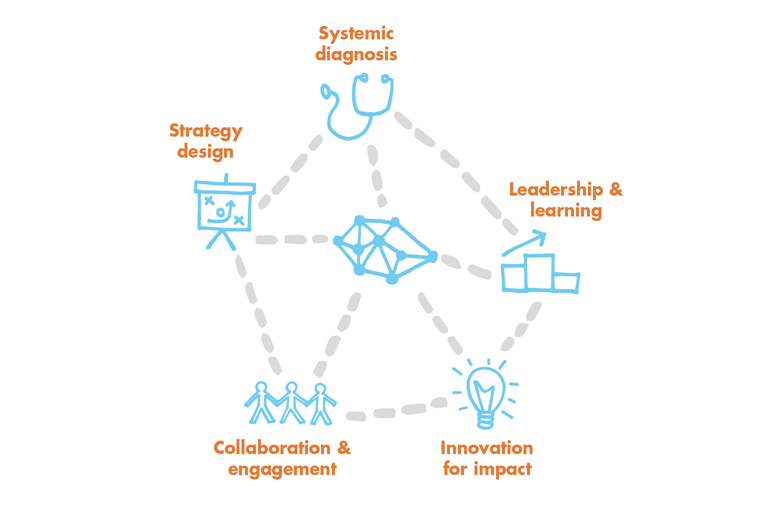The EHC Think Tank is a European Haemophilia Consortium (EHC) initiative – an international non-profit organisation representing 48 national patients’ organisations of people with rare bleeding disorders from 27 Member States of the European Union (EU) and most Member States of the Council of Europe – and is working in parallel with the EHC’s long-standing traditional advocacy efforts.
WHY
The EHC Think Tank is designed to be a vehicle and a platform for ‘systems change’ and to work in parallel with the EHC’s long-standing traditional advocacy efforts. This is because only traditional advocacy – namely a campaign-driven focus on implementing pre-determined solutions to identified problems and processes – will no longer be enough: the pace of change is too high for only reactive advocacy to succeed; there are too many unknowns for proactive advocacy to address; and the advocacy ‘asks’ will be too many to be fulfilled. In other words: what ‘got us here’ may by itself no longer ‘get us there.’
By targeting ‘systems change’, the EHC Think Tank seeks to mobilise the agency and purpose that all stakeholders in our healthcare system naturally have, to co-identify given problems from all of our and their collective perspectives, and to co-design potential solutions and trajectories of positive future change, that will then be co-championed, co-owned and co-implemented – thereby creating an ‘inside-out’ advocacy and multiplying its effect.
HOW
Shifting from a purely project-based to a more people-driven approach requires a cultural and mindset shift, a longer time horizon, and the right conditions. For this reason, the Think Tank is funded exclusively through hands-off grants, employs methodologies that support genuine bottom-up co-creation (e.g. human-centred design thinking), and is running under strict terms of reference and codes of conduct that capture Chatham House and other compliance and engagement standards.
When operating from a ‘systems change’ point of view, certain individual capabilities should be stressed which extend beyond typical project management tasks. These five capabilities are:
- Collaboration — since systemic change cannot be achieved alone, collaboration, building partnerships and coalitions are key to co-create, co-evolve, and co-learn.
- Diagnosis — diagnosing the complex sustainable challenges that by nature are multidimensional and interconnected, thereby enabling an analysis of the challenges in a holistic way to help gather the right insights to find opportunities for intervention.
- Strategy — designing systems change interventions as a strategy for transformation to help make more robust choices about where and how to intervene.
- Innovation — drawing on innovation tools like human-centered design thinking to develop solutions that seek to create scalable, sustainable and systemic impact.
- Leadership and learning — exploring and navigating within complex systems requires reflection on personal leadership and learning as well as the importance of collective leadership and learning.

